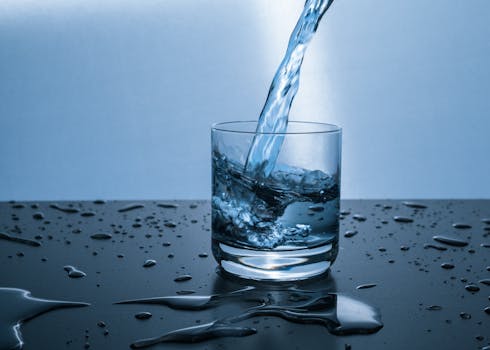The Importance of Hydration in Sports Recovery
Hydration is a critical component of athletic performance and recovery. While many athletes focus on training regimens, nutrition, and mental preparation, the significance of proper hydration often goes overlooked. This article delves into the importance of hydration in sports recovery, offering insights on how to rehydrate effectively after training and competitions.
Why Hydration Matters
Water is essential for numerous bodily functions, particularly during and after physical exertion. When athletes engage in intense training or competitions, they lose fluids through sweat and respiration. This loss can lead to dehydration, which negatively impacts performance and recovery. Here are some key reasons why hydration is vital:
- Regulates Body Temperature: Adequate hydration helps maintain optimal body temperature during exercise, preventing overheating.
- Supports Muscle Function: Water is crucial for muscle contraction and relaxation. Dehydration can lead to muscle cramps and fatigue.
- Enhances Nutrient Transport: Proper hydration aids in the transportation of nutrients to cells, promoting recovery and muscle repair.
- Improves Cognitive Function: Hydration affects mental clarity and focus, which are essential for strategic decision-making in sports.
Signs of Dehydration
Recognizing the signs of dehydration is crucial for athletes. Common symptoms include:
- Thirst
- Dry mouth and throat
- Fatigue and weakness
- Dizziness or lightheadedness
- Dark yellow urine
Monitoring these signs can help athletes take proactive measures to rehydrate effectively.
How to Rehydrate Properly
Rehydration is not just about drinking water; it involves a strategic approach to restore lost fluids and electrolytes. Here are some effective methods for rehydrating after training and competitions:
1. Drink Water
The most straightforward method of rehydration is drinking water. However, the amount needed varies based on factors such as body weight, exercise intensity, and environmental conditions. A general guideline is to drink:
- 16-24 ounces of water for every pound lost during exercise.
- At least 8-10 ounces of water within 30 minutes post-exercise.
2. Incorporate Electrolytes
During prolonged exercise, athletes lose not only water but also essential electrolytes like sodium, potassium, and magnesium. Replenishing these is crucial for recovery. Consider:
- Sports drinks that contain electrolytes.
- Natural sources like coconut water or electrolyte tablets.
- Foods rich in electrolytes, such as bananas, avocados, and leafy greens.
3. Monitor Urine Color
A simple way to gauge hydration status is by monitoring urine color. Aim for a light yellow color, which indicates proper hydration. Darker urine suggests dehydration, while completely clear urine may indicate overhydration.
Case Studies and Statistics
Research supports the importance of hydration in sports recovery. A study published in the Journal of Athletic Training found that athletes who maintained proper hydration levels experienced:
- 20% faster recovery times.
- Improved performance metrics, including strength and endurance.
Additionally, a survey conducted by the American College of Sports Medicine revealed that nearly 75% of athletes do not drink enough fluids before, during, and after exercise, highlighting the need for increased awareness and education on hydration practices.
Conclusion
In conclusion, hydration plays a pivotal role in sports recovery, influencing everything from muscle function to cognitive performance. Athletes must prioritize rehydration strategies that include drinking water, replenishing electrolytes, and monitoring their hydration status through urine color. By understanding the importance of hydration and implementing effective rehydration practices, athletes can enhance their recovery, improve performance, and ultimately achieve their athletic goals. Remember, staying hydrated is not just a post-exercise task; it is a continuous commitment to overall health and performance.
